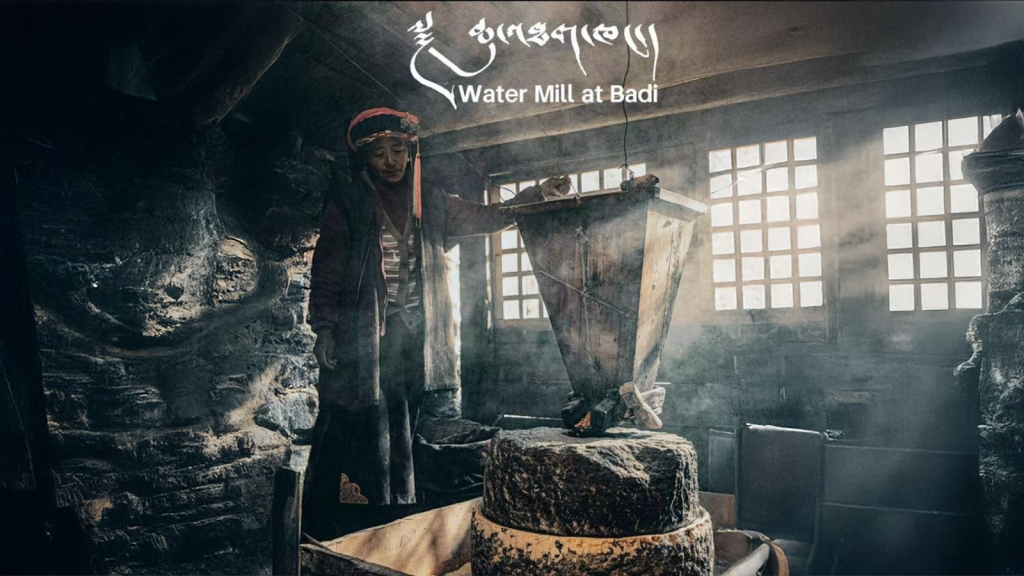新湖畔网 (随信APP) | 巴蒂水车:一个通过朗萨·维托诸葛镜头呈现的藏族爱情故事

照片由Langsa Vito Zhuge提供
数字新闻网作者表达的观点属于他们自己。
从本质上讲,爱并不是耐心的标志。然而,最受欢迎的爱情故事讲述了一种长久的心境,渴望和放手之间展开了竞争,看看谁会获胜。《Badi水车》是一部2023年的短纪录片,讲述了实现一位96岁母亲愿望的故事。通过Langsa Vito Zhuge的艺术制作视角和导演Khabu的指导,这个屡获殊荣的项目在雪域世界西藏,喜马拉雅山的北面,讲述了一个充满感情打动和引人入胜的故事。
《Badi水车》的叙事保持简约,同时融入了精致的影视视觉,个人叙事和文化方面。现场访谈和人们的轶事增加了故事的真实性:水车本身展示了该地区对抗恶劣条件的韧性,并描述了当地社区的生计。细微的声音描绘了该地区悠闲的生活状态,尽管在应对日常生活中可能会显得单调的困难时刻。
当Vito接手这个项目时,他充分意识到制作《Badi水车》将会面临的挑战,他在对西藏进行调研后对此有了充分了解。这包括后勤障碍、适应能力、有限资源和多变且常常恶劣的天气条件。Vito认为这些挑战是作为制片人固有的,他发现整个经历是一次学习和实验,这也影响了他对世界和生活的个人看法。
在发布后,这部纪录片受到了观众们的巨大开场和反响,获得了许多国际娱乐节的提名。它荣获了《IndieX电影节》最佳纪录短片奖,《独立短片奖》最佳纪录铂金奖,《Impact DOCS奖》最佳纪录短片奖,也是《阿约提亚电影节》最佳纪录片的亚军。在接受当地媒体采访时,Vito分享了纪录片的成功来自于整个演员阵容和工作人员的努力合作,鉴于困难的制作过程和严格的拍摄计划。纪录片由Yongzhong Lamu、LankasiMo和MingqingLiu主演。
该纪录片还被正式选中首映于莫斯科国际纪录片电影节、RIFFA-里贾纳国际电影节和奖项、HollyShorts电影节、Aporia国际村庄电影节以及马杜赖国际纪录片和短片电影节。根据Vito的说法,纪录片的放映和选择是该项目的一个重要突破,为其提供更广泛的影响力,使其成为一个全球著名的作品。这部纪录片向全球观众展示了西藏的文化、人们、生活、信仰和日常活动。Vito渴望在未来参与许多类似的项目,并完全融入该地区多样化的文化图景。
...
欲了解更多关于《Badi水车》的信息,请查看IMDb上的《Badi水车(2023年)》。Langsa Vito Zhuge可以通过他的Instagram联系以进行专业合作。
#水 #车 #巴迪 #藏族 #爱 #故事 #镜头 #Langsa #Vito #Zhuge
英文版:
Photo courtesy of Langsa Vito Zhuge
Opinions expressed by Digital Journal contributors are their own.
Love, by virtue, is not a sign of patience. Yet the most beloved love stories narrate the enduring state of mind where longing competes with moving on to see who wins. Water Mill at Badi is a 2023 short documentary about fulfilling the wish of a 96-year-old mother. Through the artistic production lens of Langsa Vito Zhuge and the direction of Khabu, the award-winning project delivered an emotionally riveting and compelling story set on the snowy roof of the world Tibet, on the northern side of the Himalayas.
The Water Mill at Badi’s storytelling maintains simplicity while incorporating nuanced layers of cinematic visuals, personal narratives, and cultural aspects. Direct interviews and anecdotes from the people add to the story’s reality: the water mill itself demonstrates the region’s resilience against harsh conditions and describes the sustenance of local communities there. The subtle sounds depict the laidback lives in the region, though not without the difficulties of navigating what may seem to be the humdrum routine of everyday living.
When Vito approached the project, he was fully aware of the challenges that the production of the Water Mill at Badi would present after he conducted his research about Tibet. This included logistical barriers, adaptability, limited resources, and unpredictable and often harsh weather conditions. Vito believes these challenges are inherent to being a producer, and he found the entire experience to be one of learning and experimentation, which also impacted his personal view of the world and living.
Upon its release, the documentary received tremendous openings and responses from the audiences, earning nominations at many international entertainment festivals. It won Best Documentary Short at the IndieX Film Fest, Best Documentary Platinum Award at the Independent Shorts Awards, and Award of Merit in Documentary Short at the Impact DOCS Awards. Water Mill at Badi was also a runner-up for Best Documentary at the Ayodhya Film Festival. In an interview with the local media, Vito shared that the documentary’s success resulted from the efforts of the entire cast and crew, who collaborated, given the difficult production process and stringent shooting schedules. The documentary stars Yongzhong Lamu, LankasiMo, and MingqingLiu in pivotal roles.
The documentary was also officially selected to premiere at the Moscow International Documentary Film Festival Doker, RIFFA-RRegina International Film Festival and Awards, HollyShorts Film Festival, Aporia International Village Film Festival, and Madurai International Documentary and Short Film Festival. The screening and selection of the documentary, according to Vito, was a momentous breakthrough for the project, allowing for greater reach and making it a globally acclaimed production. The documentary showcased Tibetan culture, people, life, beliefs, and everyday activities to audiences worldwide. Vito is eager to participate in numerous similar projects in the future and fully immerse himself in the region’s diverse cultural tapestry.

Vito vividly recalls the reaction of the community members he filmed as one of the most memorable moments he spent working on the project, a memory he will always cherish and rejoice over. The reactions, cheers, and tears of happiness and joy reminded Vito of why he loves doing what he does and why he chose to be in the filmmaking business in the first place. The documentary was intended to honor their stories and let them know that their experiences mattered.
“So grateful for capturing their challenges and culture’s beauty,” said the producer.
Vito had an amazing experience working with director Khabu, whose knowledge and expertise are not unknown. Khabu received recognition at the Kolkata Shorts International Film Festival for Water Mill at Badi. The award-winning director has contributed to more than 20 projects centered in the Tibet region. Having the creative skills of an individual on board who helped to understand the region was a huge plus point for the entire team, and Vito has been showering praise and admiration for being able to learn from the best in the business.

Through this project, Vito has also discovered a newfound love for exploring remote regions across the world. His interest in learning new cultures, languages, and lifestyles has been piqued, and he actively seeks to be part of such working experiences. He reflects on when he and his team endeavored to integrate into the local community: he shared that the most effective communication occurred at the region’s most random places. At the local drink stop, friends from all over the place would gather and talk about possibly all topics at length. This gave Vito a deeper understanding of their perceptions, opinions, responses, directions, and assumptions, providing him with an interesting perspective on the world. Participating in conversations about topics he knows little about has become Vito’s new hobby.
“I feel well-prepared for future projects in remote locations or fast-paced environments. The experience has equipped me to approach storytelling with respect and authenticity, ensuring that I honor diverse voices and communities, particularly in the multicultural landscape of the US,”shared Vito.
To read more about Water Mill at Badi, please head over to Water Mill at Badi (Short 2023) – IMDb. Langsa Vito Zhuge can be contacted via his Instagram for professional partnerships.
Water Mill at Badi: a Tibetan love story through the lens of Langsa Vito Zhuge
#Water #Mill #Badi #Tibetan #love #story #lens #Langsa #Vito #Zhuge



